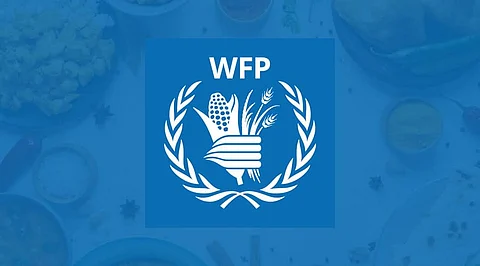

Delivering decades of innovative humanitarian response has shaped the World Food Programme (WFP) and its collective mindset, cultivating the persistence, ingenuity, and problem solving that are now driving its digital transformation.
With innovation and technology, WFP speeds up emergency response, scales up assistance, and brings empowerment and choice to the lives of people in need.
There are many ways technology can help in WFP's fight against hunger, including optimizing supplies for school meals programmes and training for smallholder farmers through easy-to-use apps or improving emergency response by using chatbots for two-way communication with people affected by the crisis.
To leverage technology, innovation and data to its fullest potential, WFP fosters strategic partnerships with companies and organizations that supply pro-bono access to industry-standard software, products, and professional skills.
Deploying new technology must be done responsibly, and digital solutions must be grounded in humanitarian principles to do no harm, which means avoiding exposing people to additional risks through our actions. WFP works to meet the challenges of data privacy and security with due diligence and accountability in our processes, and through collaboration with partners across the UN system to share best practices and guidelines.
WFP brings Silicon Valley-style start-up approaches to stimulate innovative thinking via its WFP Innovation Accelerator in Munich, Germany.
With the success of WFP's first fundraising app, ShareTheMeal, the Innovation Accelerator was established to proactively source, support, and scale high-potential solutions to disrupt global hunger and achieve the Sustainable Development Goals. It leverages the expertise and strategies of private sector tech leaders and start-up entrepreneurs to improve humanitarian intervention projects, by connecting them with WFP's 21,000 people worldwide and global operations in over 80 countries.
The Accelerator also shares its learnings with different actors in the UN innovation ecosystem, as co-lead of the UN Innovation Network, and with various NGOs and private sector innovation entities through its innovative services programme.
Since 2015, the Accelerator has supported more than 100 projects in 46 countries, with 14 innovations scaling up to impact 5.5 million lives in 2021 as part of WFP's humanitarian field operations. The Accelerator raised US$163 million in co-funding for innovation projects in 2021 and was named in Fast Company's lists of Best Workplaces for Innovators and Most Innovative Companies (Non-Profit) in 2021.
Join our WhatsApp Channel to get the latest news, exclusives and videos on WhatsApp
_____________
Disclaimer: Analytics Insight does not provide financial advice or guidance. Also note that the cryptocurrencies mentioned/listed on the website could potentially be scams, i.e. designed to induce you to invest financial resources that may be lost forever and not be recoverable once investments are made. You are responsible for conducting your own research (DYOR) before making any investments. Read more here.
